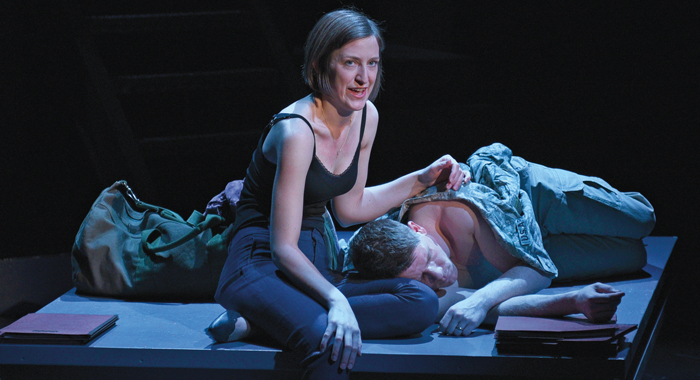Authoring Lives Lost and Found
When Erin Celello ’99 was married a year, barely out of the honeymoon phase, her husband lay close to death. Suffering from H1N1, he spent six weeks in intensive care. The doctors weren’t sure whether he had suffered any brain damage, and told Celello that if he survived, he would probably never work full-time again. Thankfully, her husband made a full recovery. But the experience had a profound impact on Celello, personally and professionally.
“I spent a lot of time thinking: ‘Wow. We had a little over a year together. This isn’t how it was supposed to go. It was not supposed to turn out this way, but it did.’” That theme – how you go about living a life you weren’t prepared to live – is a universal one, she says, whether it’s because you have a child with disabilities, a spouse who develops Alzheimer’s disease, or a family member in the military who is diagnosed with post-traumatic stress disorder (PTSD). The latter scenario would become the theme of Celello’s second novel, “Learning to Stay” (2013), which was recently adapted as a play.
Celello has gained recognition as a talented writer, with two novels published by the New American Library, an imprint of powerhouse publisher Penguin Random House. But just as significantly, Celello is also gaining recognition as a force concerning veterans’ issues.
Celello has always had an affinity for the military. Several family members have served, and as a younger person she longed to be a pilot in the Air Force or Navy. But her short stature and other issues precluded that, so she landed at St. Norbert with no idea what she wanted to be when she grew up. After dabbling in diverse majors, she settled on English around the time she audited a poetry class and subsequently won a campus-wide writing competition. Yet she never lost her deep admiration and respect for those who voluntarily enlist to protect the rest of us.
Fast-forward a decade. Celello is now an assistant professor of English at the University of Wisconsin-Whitewater, a position she secured after working with Gov. Jim Doyle, where part of her job entailed accompanying him to military funerals. She is also spending an enormous amount of time researching various military topics for “Learning to Stay.” Awed by the enormous sacrifices veterans make on our behalf, troubled by the problems many have reintegrating into our communities and angered when some publishers tell her the public is tired of hearing about the war, she decides to help out.
Celello becomes a mentor with the Veterans’ Writing Project, which pairs published writers with vets who need assistance penning their stories. And she proposes a new course to the UW-Whitewater administration: a veterans-only composition class.
Celello’s course is approved, and is so successful the university now offers a veterans-only math course as well. In addition, other campuses in the University of Wisconsin system are considering expanding upon the idea. Celello is thrilled.
Forward again to today. “Learning to Stay” continues to stir conversation. Right now, Celello is content just to write, and to teach others the craft. And, of course, to help veterans.
July 1, 2017












